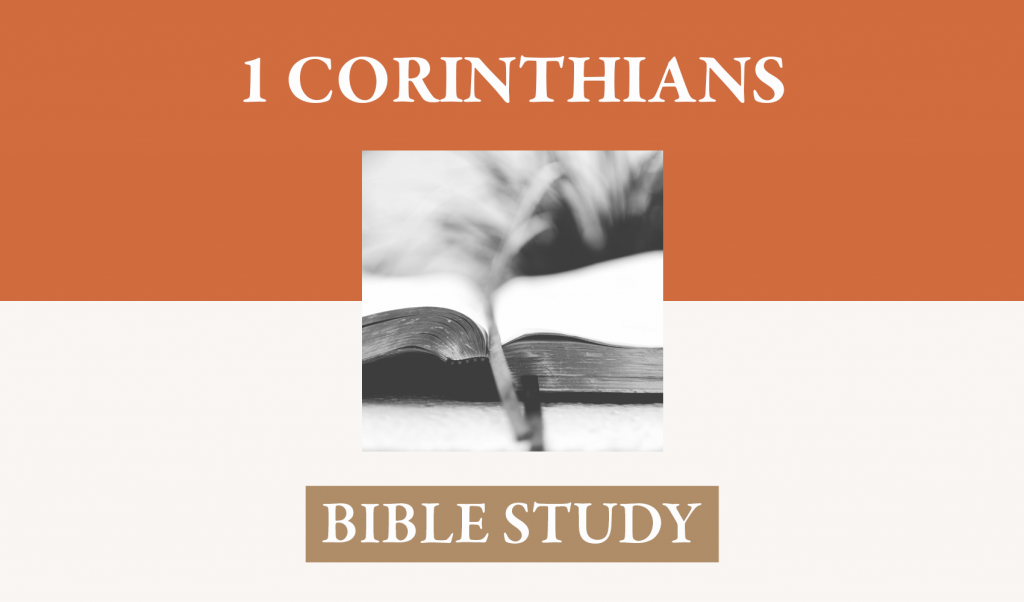I. The Perversion of the Lord’s Supper in Corinth. Paul was not approving of how some in the Corinthian church had taken a meal given by the Lord as an occasion for flaunting differences of economic standing and for pursuit of pleasure – “I do not praise you” (17; see also 22)
A. The Supper is to be for edification, but they had turned it into an occasion for destruction of fellowship – “not for the better but for the worse.”
B. The Supper, so it was reported, had created, or perhaps had revealed, serious division in the church.
- Paul believed the report. Obviously, he knew the trustworthiness of those who reported to him and that their motive was to seek restoration of fellowship and fitting priorities.
- In the larger doctrinal scheme, however, he believed the report, for he knew that these kinds of divisions must necessarily arise to sift the wheat from the chaff in Christian profession. Verse 19 has several important words.
- The word for “must be” or “necessary” carries the weight of moral or theological necessity. Like throwing the wheat in the air in order for the chaff to blow away is a necessary process in getting at the pure grain, so this kind of trouble provides the necessary occasion to separate believers who accept apostolic authority from those who want to invent their own religion.
- Paul had seen that such difficulties would arise as an opportunity for true Christians and true ministers to pursue truth and holiness in spite of opposition (1 Timothy 4:1, 6-7).
- The word for divisions is the word from which we transliterate the word “heresies.” Such divisions in doctrine mean that one side is orthodox and the other is heretical. Some heresies more seriously contradict the sum of revealed truth than others. All are obstacles to our growth in holiness, our maturing knowledge of Christ, and the purity of our worship. Some would be of such a nature as to exclude the reality of true faith.
- In this case, since the authority for developing New Testament practice and for establishing the final form of revealed truth came from the apostolic and prophetic words, both spoken and written, adherence to Paul’s exhortations and instructions would be decisive in the determination of true faith (See also Romans 16:17-18). Some room, of course is given for different levels of maturity in discernment (Philippians 3:15, 16; 2 Thessalonians 3:13-15).
C. Paul was quite ready to praise the churches in their witness (1 Thessalonians 1:6-8), their spiritual growth (Philippians 1:3-7), their purity of doctrine, their perseverance (2 Thessalonians 1:3, 4), and their generosity (Philippians 4: 14-16); but if they were doing something positively destructive, he would not be unclear about his disapproval (Galatians 1:6, 7; 3:1; 5:3, 4). He told them plainly as he summarized his summary of their deportment, “In this I will not praise you.”
- Some were using the Lord’s Supper as a mere pretense for the flaunting of their opulence and appetites as they probably were seeking the upper hand in the church by their posture as richer and more socially admired. Paul already had set a theological foundation for demolishing this pretentiousness (1:26-31). “You meet . . . not to eat the Lord’s Supper.”
- They bring their own food and separate themselves from others to make an exclusive feast of what is supposed to be a memorial of common dependence on divine grace. “Each one takes his own supper first.” Some even went to the point of becoming drunk.
- Paul made a distinction between the purpose of home life and the purpose of church life. While he gave plenty of inspired guidelines about the home and proper relationships there (Ephesians 5:25-6:9; Colossians 3:18-4:1), the manner of relating there is different from the way in which one thinks about his relationships in church.
- In the home our meals conform to the revealed order of home life and to the customs established about what we like to eat, how we like to carry on discussion, when we have dessert, where we sit etc.
- In the church, however, we eat the Lord’s Supper in accord with revealed purpose, revealed meaning, and revealed words. We look to our dependence on Christ in his atoning work and to our fellow Christians as equal in their standing before him as God’s chosen people, included in the effectuality of Christ’s death, and called with power by the Holy Spirit.
- In the fellowship of the church, it is not hypocrisy to put aside our personal grumpiness and bothersome distresses and to put the well-being of others at the front. We seek their edification, not our preeminence, their comfort and growth, not personal commiseration. We will be careful not to “despise the church of God and shame those who have nothing.”
II. Instructions Concerning the Supper
A. Paul received by revelation the instructions concerning the institution and the meaning of the Lord’s Supper—“I received from the Lord.”
- He delivered to them precisely what he had received from the Lord. That made their abuse all the more degrading, for they had been instructed concerning the seriousness of this church observance.
- Paul emphasized that this memorial so important to the worship of the church and so pivotal in grasping the providence and purpose of God, occurred on the night that Jesus was betrayed.
- In the full knowledge of his coming betrayal, Jesus gave thanks.
- He was about to establish a memorial of the event soon to take place, the beating and breaking of his body and the shedding of his blood. Both his physical suffering and the anguish of his soul were inextricably united in the work of atonement. Suffering in hell will be physical as well as mental and spiritual. Jesus experienced the entire spectrum of retributive justice.
- Jesus’ “Thanks” was for the successful culmination of the work the Father had sent him to do and the assurance that his covenantal work of death would be given its full measure of success. He would “see the labor of his soul and be satisfied” (Isaiah 53:11). In the 17thchapter, Jesus had prayed for those that the Father had given him. In Matthew 11:25, he thanked the Father for the perfect unity revealed in the plan of redemption.
B. Paul reviewed the words used by Christ in instituting the Supper as a perpetual memorial of his death.
- When he said, “This is my body” and “This is my blood,” he stood before them not yet having died and ascended. His meaning, therefore, was that the bread and the wine signified his body and blood soon to be broken.
- For us the same symbolism is present; we call to mind, meditate, contemplate the meaning of these words by now having a fully revealed knowledge of that which was accomplished in his death.
- The elements remain bread and wine as an instructive symbol, physical reminders of his once-for-all atoning work. They do not become the body and blood of Christ, nor are they a resuming or continuation of the sacrifice. That was finished at Calvary.
- Already, by God’s grace of calling, we have accessed the saving power of his broken body and shed blood; this partaking is not a saving sacrament nor communicative of saving grace in any form. Like any presentation of truth, but this in intense concentration in symbolic form, the Spirit takes the truth of these words and this action and brings us nearer to pure worship and sure reflection of Christ’s holiness.
- Doing this is a proclamation of the gospel. The entire church preaches when it partakes of the Lord’s Supper. It is a perpetual ordinance for we make the proclamation “until he comes.”
C. Paul stated the simple but inexhaustibly profound significance of this act of remembrance.
III. The Manner of Taking the Supper.
A. The Necessity of Humble reverence.
- Paul described the “unworthy manner” in which the Corinthians church had observed the Lord’s Supper. To come in a “worthy” manner implies several disciplines to be cultivated.
- A worthy manner does not mean that we consider ourselves worthy of the forgiveness and justification received by Christ’s substitutionary work. In fact, it requires the opposite, that we recognize our coming is a testimony to the free grace and faithful lovingkindness of God.
- This event does not heighten distinctions between the members of the body of Christ, but shows us our mutual and absolute dependence on the spiritual food that he has provided.
- We are beggars, that is sure, and we come as beggars confessing our gratitude as well as our continuing need. To avoid a flippant, casual, or scornful manner requires a continual survey of our lives with the need for continued cleansing by the blood of Christ (1 John 1:7-9).
- When we lose sight of the worthiness of the sacrifice, we will conduct ourselves in an irreverent manner, profaning that which is sacred. The symbols that we take, lead us to a direct consideration of the provisions of the covenantal arrangements that brought the Son of God from heaven to die for creatures. Though the elements do not change their substance, they represent and memorialize the most amazing moment in the chronology of the world as the purpose of eternity flowed into human history. We must, as it were, learn to “Survey the Wondrous Cross on which the Prince of Glory Died.”
B. The Testimony of a life of faith. In this process, we examine ourselves.
- This is a close examination of ourselves as to attitudes and evidences concerning our union with Christ by faith. Paul issues a similar exhortation in 2 Corinthians 13:5. There, he insists that they test themselves, that they prove themselves to discern (1) whether they be “in the faith,” and in so doing they may conclude that Christ in his saving work is in them: “Do you not know yourselves that Jesus Christ is in you?” Should they fail this process of self-examination they would be “unapproved,” tested and found wanting. Paul used this word in 1 Corinthians 9:27 concerning himself. If he preached to others but failed to “run in such a way so as to win the prize,” he would be disapproved.
- Parts of this testing include a closely reasoned assessment of their complete trust in Christ with no confidence in the flesh. Is the doctrine they believe a doctrine of “Christ alone”—are they in “the faith?” Then, are they conscious of relying on Jesus the Christ and not on any kind of external or internal works of theirs. Naught of good that they have done but only in the righteousness and cross of Christ must they trust, and find themselves conscious of such trust.
- Also, have they sought to discipline their lives in such a way as to honor Christ as a holy Savior. “His divine power has given us everything that pertains to life and godliness” (2 Peter 1:3).
- Moreover, they must know that they have not approached the Lord’s table in a flippant manner, but they come with proper regard for their brethren and with reverence for the sacrifice to which this partaking points.
- They judge the body rightly when they so examine themselves. Only in the saving work which they memorialize is their faith. Only in that finality of the work on the cross, and not in the elements themselves is their salvation.






















